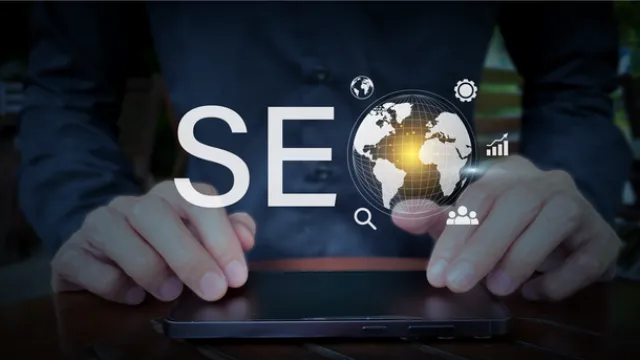Crafting Your Shopify Store: Costs, Tips & Success Stories

Entrepreneurs seeking entry into the eCommerce arena often turn to Shopify as their preferred choice. The below statistics from Builtwith, highlight Shopify Store dominance in the eCommerce market.
- The platform has 7M+ customers.
- There are more than 4M websites powered by Shopify.
Explore this article to discover why Shopify is the perfect platform for developing online stores. It will also provide insights on Shopify website development costs, helpful website marketing tips and real Shopify success stories from entrepreneurs.
The reason use the Shopify platform for eCommerce website development?
Fully-hosted platform
Shopify provides all the necessary infrastructure and resources for hosting your eCommerce website, storage, security and maintenance. It relieves businesses from worrying about managing the technical aspects of hosting and dealing with the hassles of server management.
Integrated promotional resources
Shopify comes with built-in marketing tools for SEO optimization, social media integration and coupon codes. These are effective for businesses in managing and tracking their marketing campaigns.
Immediate Technical Guidance
Shopify provides 24/7 customer support through multiple channels. With options like live chat, email and phone, Shopify guarantees prompt assistance for businesses facing challenges or having queries.
Scalability
Shopify is versatile enough to meet the requirements of businesses across all scales from small startups to large enterprises. Whether at the initial stages of establishment or undergoing rapid expansion Shopify can adapt to your business growth offering flexibility and room for expansion.
Security and reliability
Shopify offers stringent security measures, regular updates and SSL encryption. These measures ensure a secure environment for your online store against potential threats.
Payment options
Shopify accepts various payment gateways and also offers its payment solution. This makes it simpler for sellers to make their products accessible to a wide range of audiences without worrying about compatibility with the consumer’s payment medium.
Also Read: Driving Efficiency Through B2B ECommerce: How to Build Sites That Enhance Business Operations
The cost associated with Shopify website development
Shopify subscription plans
Shopify offers various subscription plans from which business owners can select according to their requirements. These plans include
- Basic Shopify – $29/month
- Shopify – $79/month
- Advanced Shopify – $299/month
- Shopify Plus – $2000/month
Shopify charges transaction fees for each sale made through your online store except for payments made using Shopify Payments.
Domain name
When estimating your Shopify website development costs, remember to include the expense of registering a domain. While Shopify does provide a domain name for a website which is incorporating a custom domain name into your site is essential.
Though domain name registration fees range from $10 to $30 annually they may vary depending on several factors, such as the chosen domain name, selected top-level domain and the domain registrar.
Purchasing a theme or creating customised layout
The Shopify Theme Store offers a variety of themes. While free Shopify themes are preferred by small businesses or those with budget constraints they often come with limited design customization options and can restrict businesses from truly reflecting their brand identity.
For businesses seeking highly tailored website designs custom theme development is a viable option. Although an expensive investment as it includes creating a theme from scratch and it provides complete control over website design.
In this regard the cost of developing a Shopify website can be broken down into two categories
- Opting for the DIY approach by utilizing pre-existing themes and handling the customization in-house
- Hiring a Shopify developer from third-party service providers for custom theme development
While the DIY approach is cost-effective initially it often requires significant time and effort and the result may not fully meet the business needs. On the other hand, partnering with a developer involves higher upfront costs but offers several benefits including expert guidance, tailored solutions and a professionally designed website. The second approach may cost you around $500 to $10,000 depending on the complexity of the design and functionality requirements.
Including apps developed by third parties
Shopify has an extensive marketplace called the Shopify App Store where developers offer a wide range of apps and plugins designed to add new features, improve store management, streamline operations and enhance customers’ overall shopping experience.
Many third-party apps in the Shopify app store are free which offering a freemium model providing essential features at no charge. More advanced features may require a one-time payment or a recurring subscription fee ranging from $5 to $100 per month.
Integrating multiple apps could lead to complexities and compatibility issues with your store’s existing functionalities. For seamless integration of an app into your app store that leveraging Shopify development services from an expert is advised.
Proven tips for Shopify store marketing
Effectively marketing a Shopify store is crucial for attracting visitors, driving sales and growing your business. Here are some actionable marketing tips for a successful Shopify store
Shopify store optimization
To have a visually appealing Shopify store, you must include high-quality images and clear product descriptions. This will enable customers to access comprehensive and precise details about your products.
Ensure easy navigation throughout your Shopify store to enhance the overall customer experience.
Create compelling content
Develop compelling and pertinent content like articles, product tutorials and instructional guides to captivate and involve your specific audience. You can further extend the reach of this content by sharing it on social media platforms and email newsletters to drive traffic and establish credibility.
Utilize social media
You can promote your Shopify store on different social media platforms, like Twitter and LinkedIn. Post regularly and run targeted ads to foster brand awareness and drive sales.
Implement email marketing
List your customers’ and potential leads’ emails so that you can send them targeted email campaigns. This will help you to promote new products and special offers. Customize your emails that categorize your recipients and employ automation to cultivate leads and encourage repeat purchases.
Inspiring Shopify success stories from business owners
Below are two entrepreneurial success stories that exemplify Shopify’s transformative power in enabling businesses to succeed in the competitive eCommerce landscape.
B&M Fabrications
B&M Fabrications has emerged from its owner’s passion for mountain snowmobiling and a desire to fill a niche market with high-quality products. Their journey to success was greatly aided by Shopify.
They used Shopify to transform their cumbersome traditional website into a compelling online store. This transition resulted in a rise in online sales and reduced downtime.
The company relied on key Shopify apps for smooth operation, including the Shopify Facebook store for seamless integration with social media Shippo for streamlined shipping processes and MailChimp for effective email marketing.
B&M Fabrications advises aspiring entrepreneurs to embrace challenges, stay focused on their goals and always follow through on their ideas.
Nutriseed
Nutriseed is a thriving health and vegan food brand, recognized the rising trend in health foods and thus set out to create a brand that offers top-quality food items. It has leveraged various Shopify apps such as Emma for email marketing, Privvy for collecting email addresses and many others that have helped Nutriseed in many ways.
Their initial sales came through social media channels fueled by customer feedback. To expand its reach, Nutriseed turned to Google AdWords that recognizing the value of repeat customers.
They have gained insights from various Shopify blogs and articles to select apps from the Shopify store for their website. Thus, behind the scenes, Nutriseed relies on a suite of Shopify-recommended tools and apps.
Leveraging these Shopify tools the Nutriseed streamlined various aspects of business operations from marketing and customer engagement to SEO optimization and retargeting. This comprehensive approach has contributed significantly to their growth and success.
Conclusion
Building a Shopify store opens up a world of opportunities for entrepreneurs looking to establish their online presence and grow their businesses. While there are costs associated with website development and the investment is worthwhile. With the Shopify success stories presented in this article it is evident that Shopify is a powerful platform for eCommerce ventures. Utilizing the available tools and resources effectively enables you to establish a thriving online store that connects with your desired audience and fosters expansion.
Author Bio
Nathan Smith Presently employed with TechnoScore, a top programming organisation is an established web and app developer. As a computer hobbyist, he is interested about using his blog posts to share his expertise in online and application creation. Nathan maintains always connected concerning the latest trends, developments, and changes developing within and outside of the IT business. Additionally, he is willing to share his thoughts and knowledge of the latest developments in the IT industry with people and business owners who want to succeed in the field.






